The St Kilda Archipelago lies 70 miles west of the isle of Harris and is one of the most remote of the British Isles. Inhabited from the dawn of time until its evacuation in 1930, the story of the people of St Kilda and what happened to their community is a lesson for us all.
In the west, in 2024, ideological zealots now rule, govern, teach, police and employ us, they seem bent on to destroying our economy, culture, history, customs, traditions and faith to fuel little more than their own self inflated virtue, there’s a tragic tale from our recent history that should warn us all to never allow such people the reins of power.
It’s been 96 years since HMS Harebell evacuated the last 36 indigenous inhabitants from St Kilda for the mainland and thus ended a period of inhabitation of at least six thousand years. What also ended as the islanders were scattered to the corners of the world, was an entire culture and collective memory of an isolated community on the edge of the world.
Since the passing of the last St Kildan, Rachel Johnson, in 2016 who was 8 when evacuated, the last living link to that culture drifted into time. All that remains are the memories of St Kildans brilliantly recorded by the BBC in the 1970s when that organisation still had a dedication to it’s original role; a few excellent books; some romantic novels and the hauntingly beautiful Lost Songs of St Kilda which you can find on Spotify. How this last was recorded is an allegory for how perilous the memories of the past are to total loss unless we make a conscious effort to remember and record.
St Kilda, as a Celtic community was a place of song and storytelling, and like all the islands had its own distinct music, memories and songs - were it not by a complete accident. In Silverlea Care Home, in Edinburgh in 2006, volunteer, Stuart McKenzie hears a resident, the then 73 year old Trevor Morrison, playing hauntingly beautiful music on a rickety aged piano. He asks Trevor what he is playing. The music sounds Scottish in origin, it has the ‘Scots Snap’ so redolent of the land. Trevor tells him an extraordinary tale.
When he was a boy Trevor’s family would be visited by an itinerant piano teacher who taught by ear. He taught Trevor how to play these tunes, by ear. He told Trevor that they were the tunes from his home, St Kilda. Trevor had been playing them for his own enjoyment ever since.
Realising the extraordinary importance of this, Stuart returned with a recorder and made the first and only recording of Trevor playing this music. The story did the rounds, as such unprecedented tales are want to do eventually in 2010 a Decca executive, Fiona Pope travels to Edinburgh and meets Trevor and hears the music.
Trevor sadly passed away in 2012 but in 2016 Pope asked Sir James McMillan, Scotland’s leading conductor to assemble contemporary Scottish musicians to record the tunes Trevor played - several of which were scored for orchestra. You can find it here: The Lost Songs of St Kilda
It’s quite an album and extremely evocative, especially when you think of how these tunes, some of which will be literally thousands of years old were nearly lost to us for ever. It’s also tragic to think that the words are now long forgotten but we can guess, from similar songs they would have been about love, heroes and life in such a place.
We are constantly being told how our culture doesn’t matter - some more radical voices, several of whom are sadly occupying some of our most important academic seats across the west, go so far as to tell us that we have no culture at all, and what we have was stolen from others. That cultural vandalism is now mainstream to the point that radically revisionist views of our history are being taught at our primary schools and fed to tourists in National Trusts Monuments. The utterly absurd recent instructions to Welsh Librarians to avoid booking venues which may even have the remotest possible, and I mean possible, link to the African Slave trade is a good example of this self flagellant nonsense.
It’s easy to laugh at such but if you challenge it, expect to be slandered and attacked. It’s also extremely serious because a society, a nation without a history is not a nation for it is the history, the culture, traditions and customs of a nation that provides the foundations of the nation state. Without it the nation becomes a place where people happen to live. Professor Frank Ferudi explores this in his latest book The War Against the Past, why the West Must Fight for its History . Ponder this as you listen to the album.
As the full tyranny of the woke religion proves itself to be every bit as intolerant, oppressive and miserable as the worst excesses of the Roman Church or the Kirk, suggesting that the latter were merely the latest vehicles for societies bullies to rule over others and perhaps we should have attacked those bullies rather than the vehicle given what has happened, St Kilda is a warning about what can happen to a society if we allow the bullies to win.
St Kilda’s remoteness and inaccessibility kept it away from the modern world, Christianity was only really established in the late 1700s. Unfortunately, as in so many similar cases across the globe, their innocence and immune systems were ruthlessly exploited, the former by a bullying, tyrannical zealot, the latter by the killer viruses of industrial Europe.
You see, St Kilda was evacuated in 1930, by then the population was no longer sustainable. The economy was based on a hard life of sea bird collecting, egg collecting, sheep farming and wool. The St Kildans were the most renowned cragsmen, necessity demanding that a boy became a man when he could scale the most challenging of the archipelago’s cliffs and stacks, equipped with huge hemp ropes, flat caps, tweed jackets and hobnailed boots or bare feet, they would scale the largest sea cliffs in the British Isles to recover eggs and young fulmar. The meat fed the islanders, the oil in their stomachs lit their homes and was exported as a valuable commodity, the feathers stuffed their mattresses. Every May the men would row the 6 miles to Boray to collect gannet eggs, the stacks there are home to a third of the wor;d’s total gannet population, they would sheer the wild sheep which grazed on the 40 degree grassy western slopes. The men would be there for two weeks and would communicate with Hirta, the main island by turning over parts of the turf on the grassy side of the island. Depending on where the black soil was exposed would constitute the message, all too often it told home that a man had been killed, risking his life on the cliffs.
The meeting of the daily ‘Parliament’ on the Main Street where the tasks of the day were decided and allocated
Life was hard but it was lived, Martin Martin, a Scottish Clergyman who travelled extensively around the Highlands and Islands recorded in 1697:
“The inhabitants of St Kilda, are much happier than the generality of mankind, as being almost the only people in the world who feel the sweetness of true liberty.”
Tragically, such an isolated community, cut off from the Outer Hebrides, the nearest land, 70 sea miles to the east, was nearly utterly destroyed by smallpox in the 1720s, the new visitors, as happened to other communities exposed to the ravages of that disease, had no immunity and only 30 islanders of nearly 180 survived. With the assistance of the Church and their Chief the island population slowly rose again and the memories and crag skills that were nearly lost for ever, and which were essential to the survival on the islands were taught to the next generation.
However, it was the mid nineteenth century and a crisis in the national culture in Scotland that nailed the final cleat into the coffin for the islands, yes they staggered on for another eighty years but they were reliant on charity from the mainland and never recovered as a self sufficient community.
What was this event? Well, we should be very aware in our current society how obsessions over moral questions, over who has the most virtue, is a dangerous game that can obsess humans to the point of self destruction. Don’t believe me? Look at Disney Corp’s sales figures and share price when their board decided to focus on social justice fads to as a sop to their obscene salaries was more important than wholesome family entertainment. Look at a nations across the world who are incapable of protecting their own children from violence and poisonous ideologies all in the name of supposed virtue.
19th c Scotland saw a schism in the Church of Scotland (the Kirk) that shook Scottish communities to their core. I’m not going to go into the minutiae of why this happened or how, I am more interested in the consequences. Schisms in any society tend to be polarising - look at American Politics. The parties split along a line of disagreement and that split widens to the point where, to justify their position, the louder and more vocal become increasingly strident in their position. The opponents become intolerable, not merely opponents. Throw morality into the question and such splits then dehumanise their opponents who become ‘heretics’, ‘untermensch’, ‘deplorables’. By ‘othering’ and refusing to honour them as human beings you can they excuse whatever acts you decide to carry out against them. Be that throwing them into a Gulag or writing them out of a will. Such schisms have lead to most of the bloodshed we have seen over the last 1000 years. The 30 years war, the holocaust, the Great Purge, Mao…ad nausea.
So how on earth did this impact a tiny community in the North Atlantic? Well the Kirk split and the two main entities that emerged were The Church of Scotland and the Free Church of Scotland. The latter being more popular in the north west and islands. It took years for this split to happen and during that time the Church on St Kilda was closed and remained so for about ten years. The Church had been the centre of the community and the Minister was also the teacher of the children. This was intolerable for some islanders and it resulted in a fatal blow, when nearly forty of them emigrated to Australia and settled as sheep farmers.
But what followed was the real blow. You see Christianity came late to St Kilda, its remoteness and the difficulty of accessing the islands, which are cut off my dangerous and stormy seas from September to May and even today access in those months is a challenge, meant that it slipped through the Columbine mission, it was pretty much ignored by the pre reformation Church, a single missionary mentioned it in the 12th Century. Missions to the islands were inconsistent, the community struggled to support a non contributing adult so fine were the margins of the economy. It wasn’t until after the Reformation and well into the 1700s that Christianity became properly established. Prior to this the islanders followed a hybrid of what the old Catholic missionaries left behind and a far older indigenous faith of stones, sea and sky.
As many peoples were sudden and violent death is constant (remarkably few St Kildan men died in their beds - such is the life of a cragsman) they took to Christianity like a duck to water and became enthusiastic members of the Kirk. The Pre Schism post 1600s theocracy of the 18th C Kirk was a gentle hand on the tiller and the things that make a hard life worth living: song, dancing, laughter and the odd dram were permitted. Reverend Neil MacKenzie arrived on the island in 1830 and left in 1844 just as the schism bit, was clearly a man of great humanity. He built the school, introduced basic healthcare, introduced modern agricultural practices that increased productivity. He was greatly missed when he retired to the mainland and the Church was boarded up. MacKenzie’s departure was a serious blow for the islands, the islanders had become to rely on his leadership, wisdom and education and without him it became apparent, just how dependent on the outside they had become.
Unfortunately, by 1844 the Schism was well underway and the Church of Scotland had more pressing issues to worry about than the state of the community on Hirta, so the Church remained boarded up, the school closed for over ten years. There were a few visiting ministers and schoolmasters but it wasn’t until 1865 that the island received its next permanent minister in the form of Reverend John Mackay.
St Kildan women selling their tweed to tourists in. 1913
MacKay was a Minister in the new Free Church of Scotland and if the islanders thought that they had another Mackenzie, a gentle hand on the tiller who would restore prosperity to the islands, they could not have been more wrong. Mackay was an intolerant, bigoted, bullying zealot who had the audacity to represent his joyless, choking and restrictive regime as the teachings of Christ.
Banned were dancing, singing, musical instruments, mirrors, laughter, alcohol and even tobacco was frowned upon. He introduced three services on Sunday, each often running to four hours. Children were to be seen and not heard. The Sabbath was to be so sacred that no work was permitted. All water had to be pumped on a Saturday, all food prepared then, you went to church, you went home, you sat inside the house, you didn’t even do the washing up until Monday. Children were not allowed to play, silence was observed. If a dog or a lamb went lame they had to be left until Monday, if a storm threatened the boats on the foreshore, the lifeline of the community, they had to be left to God’s will until Monday.
Worse, MacKay extended this prohibition to Saturdays. From Friday evening, no work was to take place because Friday night and Saturday were to be used in prayer preparing for the Sabbath. So strict was his rule that when an emergency supply vessel arrived on Saturday in the winter, with food and fuel and urgent medical supplies, following a storm which had wrecked much of the winter stores and had caused a famine. MacKay refused the islanders permission to unload the ship, or for the crew to unload supplies despite the perilous anchorage for the ship and the fickle and severe weather expected. It demonstrates just how much of a hold some of these Ministers had over not only their congregations but the authority of the captain of the relief ship that he would rather risk his vessel and crew than upset a Minister.
MacKay’s ‘reforms’ brought economic catastrophe to the islands, they simply couldn’t afford to lose a whole day out of the six working ones. The economy was too finely balanced, the calorific equation to tight.The men were under increasing pressure to provide for their families in five days, and also feed MacKay and meet the stipendiary demands of the church. The MacLeod of Harris, who owned the Islands had waived his rents for most of the last 100 years, understanding the challenge and frequently reached into his own thin pockets to help the islanders stave off starvation. But MacKay always made sure the Free Kirk got its due.
a rare film of life on St Kilda, 1910
Along with MacKay’s reforms came tourists from the mainland. Steamships made the crossing considerably safer and more reliable. The tourists, frequently members of other Free Kirk Congregations, landed with their Psalters and Bibles clutched in their hands, the islanders traded their tweed and folk art and their dignity for a few coins as the Victorian mainlanders gawped at them. The tourists left with their tweed shawls and left behind them influensa and, worst, tetanus infantum which resulted in an infant mortality rate of 80%.
Fowling on the cliffs
No community could survive this and even during MacKay’s tenure in the 1870s there were discussions in Edinburgh and London about evacuating the Islands, and increasingly desperate requests for help from MacLeod of Harris.
The St Kildans suffered under MacKay for 24 long, miserable years. One visitor recorded a Sabbath on the islands in 1875:
“The Sabbath was a day of intolerable gloom. At the clink of the bell the whole flock hurry to Church with sorrowful looks and eyes bent upon the ground. It is considered sinful to look to the right or to the left.”
By the time he left the islands were no longer economically viable. Entirely reliant on external help, the economic activities on which they had relied destroyed by a man so dedicated to the pursuit of his own virtue that he couldn’t care less about the consequences, despite being challenged by others, including Macleod at the time.
On that August morning in 1930, the remaining 36 islanders boarded HMS Harebell, the elderly being assisted onboard by kindly tars with the strange accents of Portsmouth, Liverpool, London and Glasgow. The sailors were instinctively aware and sensitive of the significance of this event and small acts of kindness were extended without orders. Apparently the seas, on that day, were calm and glassy with that ethereal light that anyone who knows the Scottish Isles will instantly recall.
Evacuation Day, August 1930
The islander’s sheep and livestock had been evacuated a few days earlier, their working dogs, who couldn’t travel to the mainland, were drowned in the bay. The cats were left behind, most starved in the first winter and the survivors were shot the next year to protect the sea birds.
The memories and songs of St Kilda were no longer made from that day, the St Kildans and their descendents went on to build lives across the Empire and in the United States, new ancestry tools allow them to find each other again and share the memories of their families. Few photographs of the time remain, cameras were not owned by islanders, MacKay taught they were sinful. So Trevor’s Songs of St Kilda recall the life on the island, even if only in tune, the words lost to the mists of time.
But it wasn’t a way of life that ended on that August morning in 1930, MacKay had destroyed that fifty years earlier sowing the seeds of economic destruction in pursuit of his own self inflated ego. Therein lies a lesson for us.

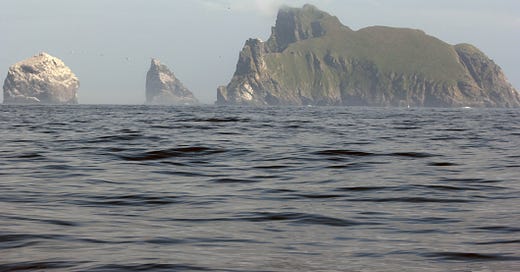



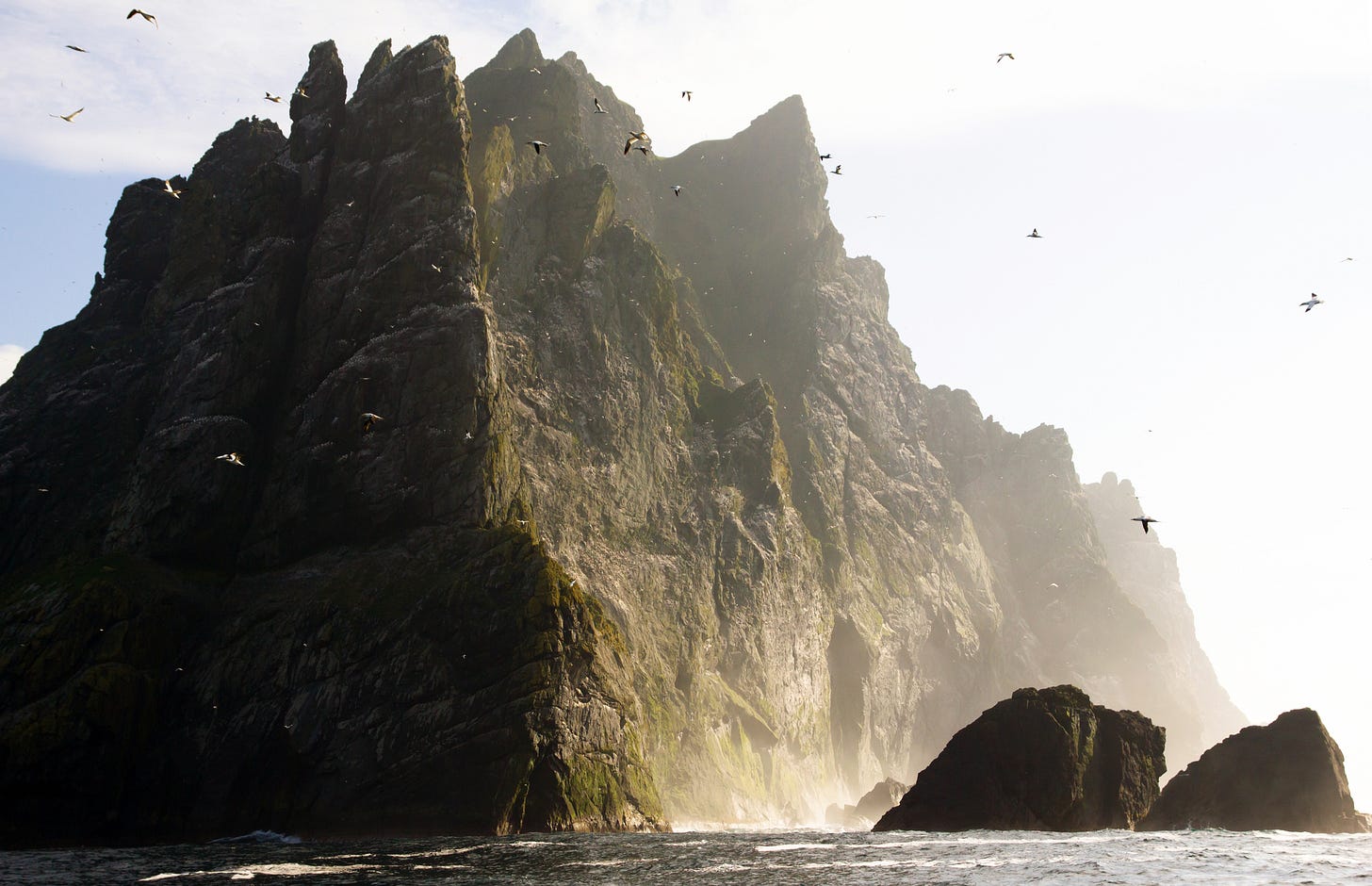

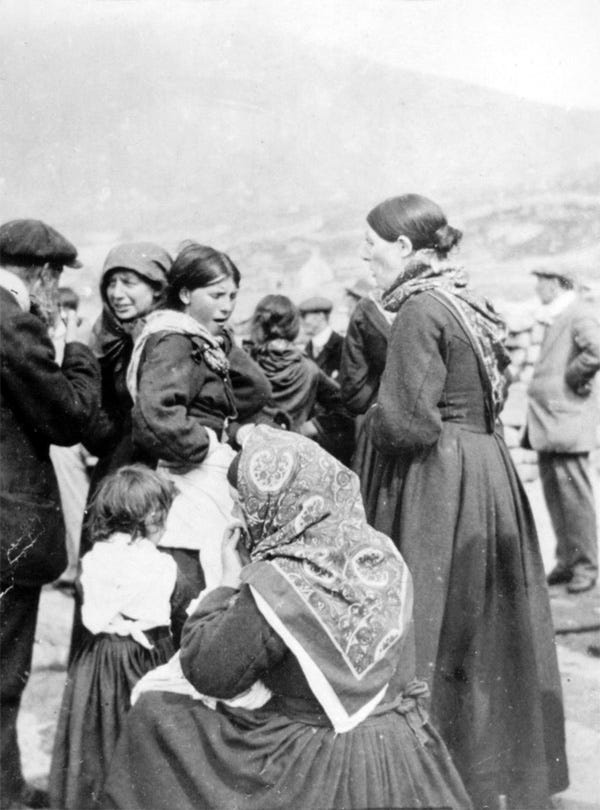
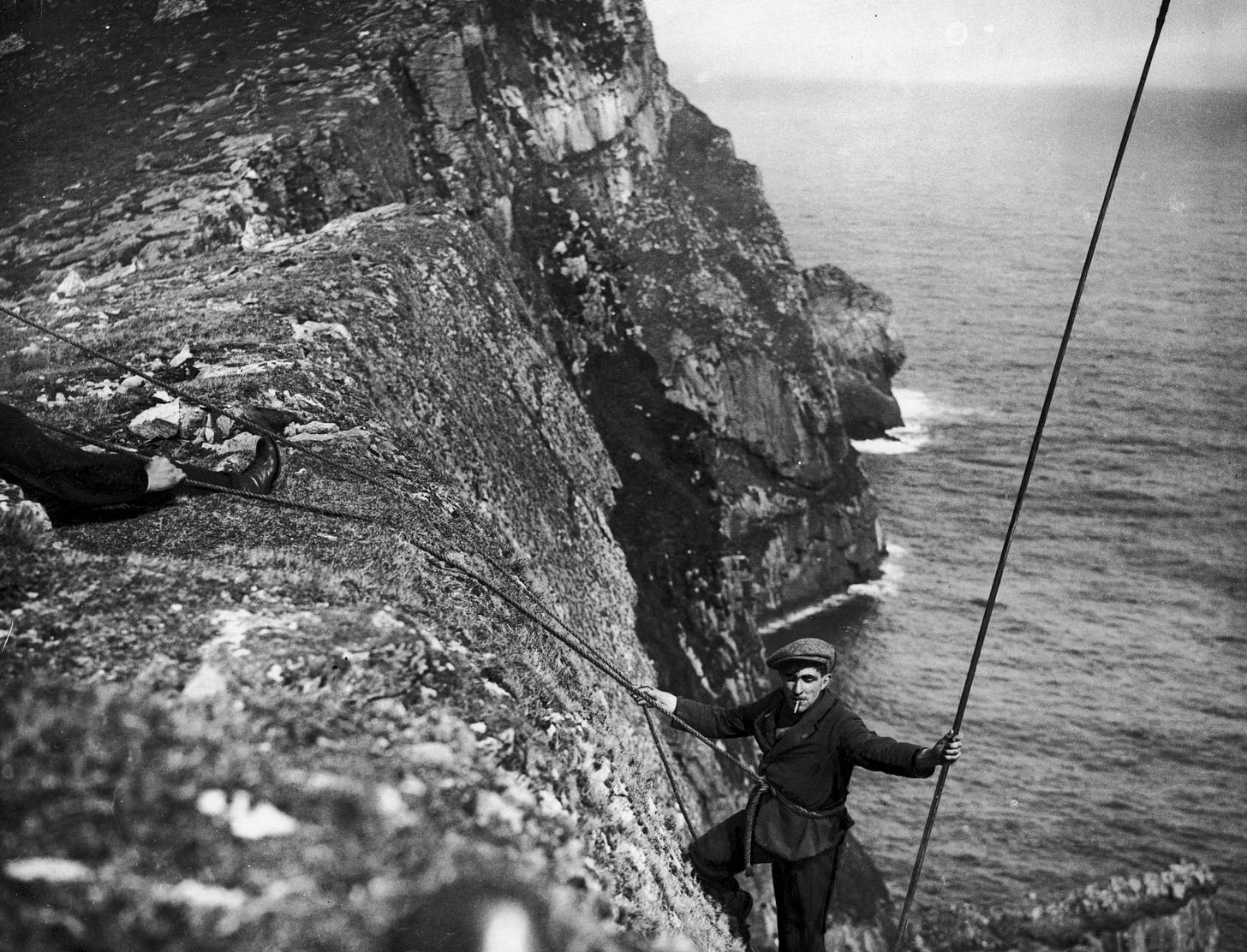
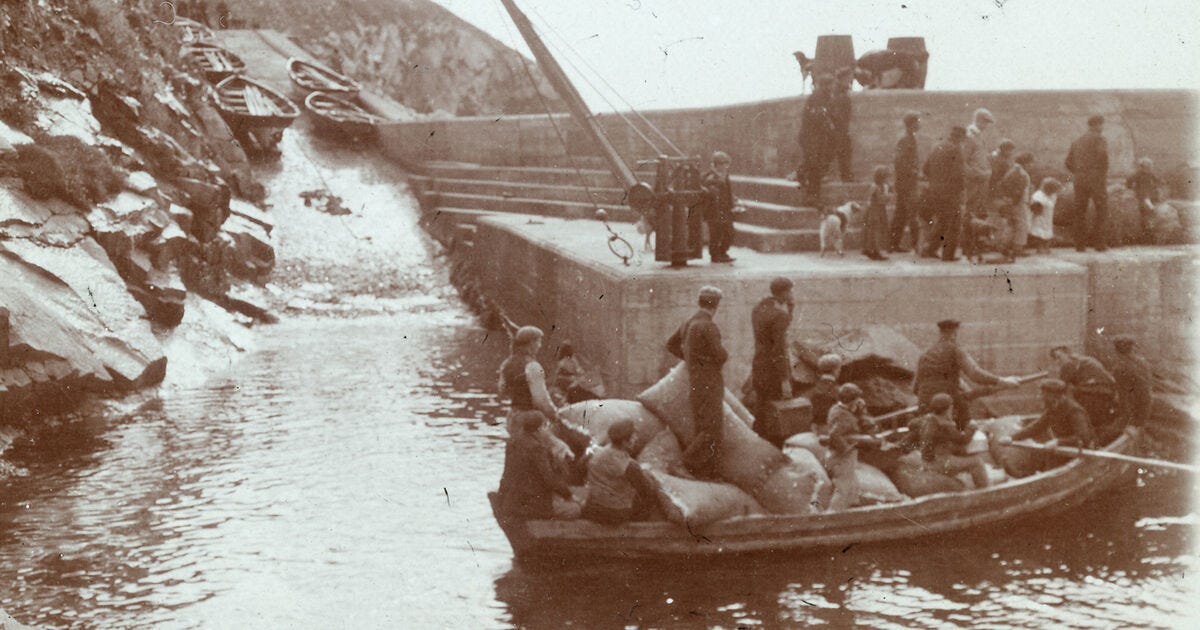
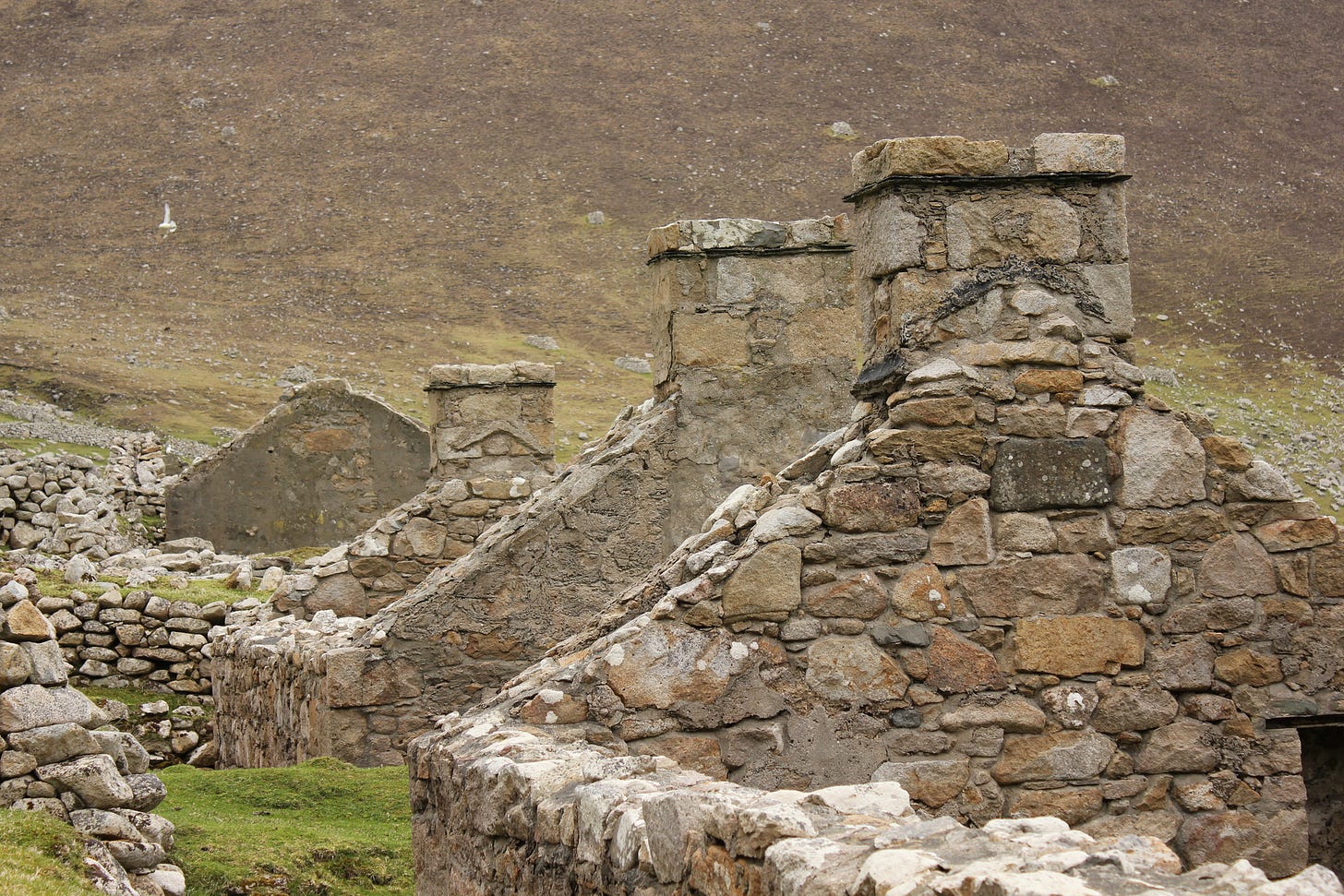
Heartbreaking
Skilfully written albeit very distressing to read. It prompts me wonder about the current state of the Scottish islands. I love Calmac and their lovely staff but ferry services to the Scottish island are blighted with problems which must surely make people wonder if island life is safe and sensible. Something is afoot and it doesn’t feel right.